SUMMARY
This is AI generated summarization, which may have errors. For context, always refer to the full article.
![[OPINION] A genuine Ilokano’s reflections on Marcos loyalism](https://www.rappler.com/tachyon/2022/03/Reflections-on-Ilokanos-Marcos-loyalism.jpg)
I am a GI. A genuine Ilokano – if by that we mean someone born in Ilokandia. I was born to parents whose parents themselves came from the same Ilocos Norte town, which, in the early 1970s, won some recognition for having had the most balikbayans from a single barangay. I have relatives, whom I’ve never met, in Isabela and I’ve been told there are many Galams in Solano, Nueva Vizcaya. I speak fluent Ilokano, it being my mother tongue, and I grew up reading Bannawag, a weekly magazine in Ilokano, for many years marketed as “ti ‘Biblia ti Kailokuan’” (the Bible of the Kailokuan.) But if by GI we mean, in addition to being ethnolinguistically Ilokano, someone whose support for the Marcoses has remained steadfast, then I am, most certainly, not.
Eh di Marcos loyalist ka?
You see, for many Ilokanos and non-Ilokanos alike, being an Ilokano and being a Marcos “loyalist” (I know some Ilokanos do not like this “loyalist” tag) have a sibling-like relationship (agkabagis, or in Filipino, mag-utol). Both in Ilocos and in the UK where I currently live, I have close, and not-so close, Ilokano friends who have declared such filial loyalty to the Marcoses (Sr. and Jr.) based on simply being Ilokano. “Siempre a, Ilokanoka, padam nga Ilokano, di ka ngarud suportaran?” (Of course, you’re an Ilokano, he’s your fellow Ilokano, why would you not support them?) When I moved to Manila in the 1990s to study at the University of the Philippines in Diliman, I would always be asked where I was from. “Eh di Marcos loyalist ka,” I would be told once I’ve revealed I was from the birth province of Marcos Sr.
ATOM ka pala!
I was born on August 21, Ninoy Aquino’s assassination. “ATOM ka pala!” I was told at UP. My younger brother was born on February 27, 1986, a day after the Marcos family was driven out of the country and fled to Hawaii. None of this had any significance to me then. I was born a few years after Ferdinand Marcos imposed Martial Law. Growing up in Ilocos Norte meant that, like many others in the country, I had no access to reports or stories of what really was happening. I don’t remember seeing or reading from Bannawag any substantial pieces relating to the assassination of Ninoy Aquino and who masterminded it. I do, however, remember seeing a concrete wall with this declaration: “Hindi ka nag-iisa, Ninoy!” The wall belonged to the family of an elementary school classmate whose brothers were studying in Manila and whom I saw vacationing when I began to notice that statement of solidarity.
I was not one with them, like most Ilokanos in the “Solid North” were not. In those days and places, it was unthinkable not to support, and be loyal to, Marcos. As a child, Marcos was my idol primarily because to everyone in my Ilocos community he was a hero. But the “Hindi ka nag-iisa, Ninoy!” bothered me every now and then. I wondered why we did not know much about what happened. Nothing reached us. With no capacity to think critically because I had no access to any information that would help shape my mind, I remained, until he was already in Hawaii, a Marcos admirer. I rejoiced when he “won” (I would later learn, he stole) the snap presidential election and “voted” no to the 1987 Constitution.
Which and whose narrative?
I’ve long turned my back on the affinity between being Ilokano and being a Marcos loyalist to disown people unworthy of my filial devotion and support. However, I’ve continued to puzzle over its hold on many, if not most, Ilokanos.
If you were from “the Marcos’ province,” you’d have been fed a steady lugaw of Marcos Sr.’s exceptionalism: from his (fake) war achievements to his bar exam exploits (bar topnotcher even if he studied for it in prison), infrastructural achievements, saving the country from falling into communism, bringing peace and order to the country, ad infinitum.
If you combine this narrative of what Marcos allegedly accomplished, and thus the utter injustice of deposing him, which many Ilokanos consider to be the (only) truth with that powerful means of establishing affinity, that of coming from the same place and speaking the same mother tongue, then it makes sense for fellow Ilokanos to support Marcos – and to pass on this support to his Jr. even if he could not speak Ilokano and has no real and solid accomplishments to boast of.
Fortunately, this narrative is not the truth. It is a myth, admittedly a very powerful one that has tightened the ties that bind Ilokano-ness with being a Marcos loyalist. Unfortunately, many Ilokanos actively choose to ignore the historical record of the atrocities committed by Marcos, of how he plundered the national treasury. We can all blame the leaders who came after Marcos for the politics of compromise and accommodation they engaged in. We should lay responsibility upon the educational system that has done little to develop a historical consciousness of the Martial Law period among pupils and students.
That being said, we must also take personal responsibility if we choose to close our eyes, if we choose to be blind. Or if we choose to continue to fool ourselves. At the height of the military regime, criticizing Marcos had fatal consequences. Now we have access to a plethora of the stories that he suppressed. We now have access to excellent scholarship, both by Filipino and foreign researchers, of what Marcos did and their impacts on us to the present. If Ilokanos choose to believe instead the various myths/lies peddled on Tiktok, Youtube, and Facebook despite the abundance of unimpeachable evidence to the contrary, we must not absolve them of their responsibility or agency for their choice. If we must blame a dysfunctional political and education system, we must also hold these people accountable, too. There is a limit to the extent we (can and must) excuse ignorance. We must not cut willful ignorance any slack. Nor deliberate denial and falsification of what happened.
The responsibility of writers
I am especially saddened by how some Ilokano writers, albeit minor ones, have failed to show moral discernment. On Facebook where I can see their posts particularly about Ferdinand Jr.’s candidacy for president, these writers have exhibited the most one-sided perspective on what Ferdinand Sr. did for the Philippines and their blind support for his spawn. Their unquestioning sharing of pro-Ferdinand Jr. materials betrays their refusal to reflect upon the wealth of Marcos and Martial Law period-related evidence that are easily available. Truth does not matter. Without a modicum of irony, they throw shade on other people’s alleged malfeasance. A writer worthy of the name would show some reflexivity. Their belligerence towards anyone, but especially an Ilokano, who expresses views critical of or that interrogate the benign Marcos image they are propagating is accompanied by an accusation of betrayal by those critical of Marcos. These writers express a clear expectation that if one is an Ilokano, they would support Marcos. Talaga a napeklan (Absolute die-hards).
I am heartened by a few Ilokano writers who are openly expressing anti-Marcos positions and who risk becoming the recipient of hostile abuse. These are writers whose loyalty is not to the cult of Marcos but rather to a cause, the cause for truth and justice which are vitally important for our country’s future. They want accountability. These writers make the point that Filipinos can’t rally around a unity founded upon the willful denial of history, upon the erasure of the murderous and plunderous reigns of both Ferdinand Marcos and Rodrigo Duterte. They prove right the Albanian writer Ismael Kadare, who said that, “Dictatorship and authentic literature are incompatible…. The writer is the natural enemy of dictatorship.” These are writers who have succeeded in cutting the umbilical cord that links being Ilokano with being a Marcos follower.
Time for waswas
It is time Ilokanos see Ferdinand Marcos as a source of great shame, the kind that makes us strive hard to prove we are different from him, the kind that, however hard and painful, makes us want to dissociate ourselves from him and his family. Sever the ethnolinguistically imagined ties and let them strike out on their own. They’ve lived off these ties long enough and what have we/the Ilocos got in return? Ilocos Norte as the poorest province in Region 1 after 30 years of power rotating among themselves? We don’t deserve them. Waswasentayon a naminpinsan. (Let’s end it once and for all).
Let us do ourselves a big favor. Let us be selfish this time, and this time, our selfishness will be the best thing we’ve ever done for our nation. – Rappler.com
Roderick Guerrero Galam is a Senior Lecturer in Sociology at Oxford Brookes University. He is author of The Promise of the Nation: Gender, History, and Nationalism in Contemporary Ilokano Literature and Women Who Stay: Seafaring and Subjectification in an Ilocos Town, both published by the Ateneo de Manila University Press.
Add a comment
How does this make you feel?
![[New School] Sapat bang iboto si Marcos dahil lang siya’y kapwa-Ilokano?](https://www.rappler.com/tachyon/2022/01/ilocos-vote.jpg?fit=449%2C449)
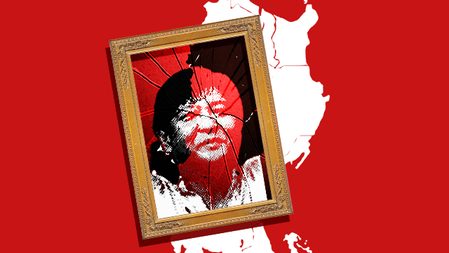
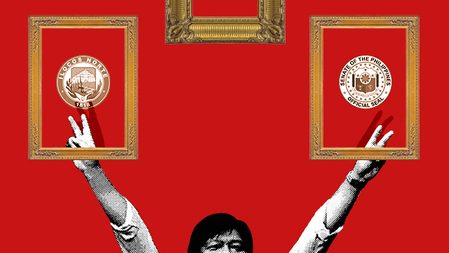
![[OPINION] If it’s Tuesday it must be Belgium – travels make over the Marcos image](https://www.rappler.com/tachyon/2024/04/tl-travel-makeovers-marcos-image.jpg?resize=257%2C257&crop_strategy=attention)
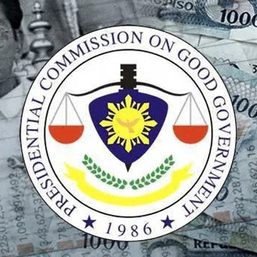

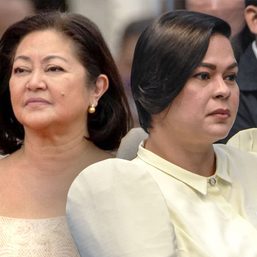
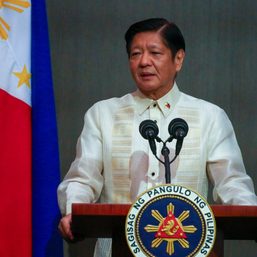
![[Just Saying] Marcos: A flat response, a missed opportunity](https://www.rappler.com/tachyon/2024/04/tl-marcos-flat-response-april-16-2024.jpg?resize=257%2C257&crop=277px%2C0px%2C720px%2C720px)
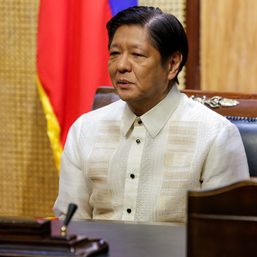

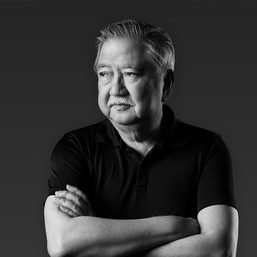
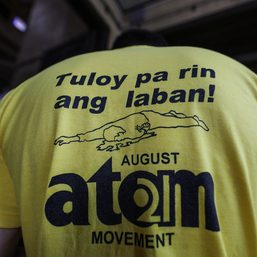
There are no comments yet. Add your comment to start the conversation.